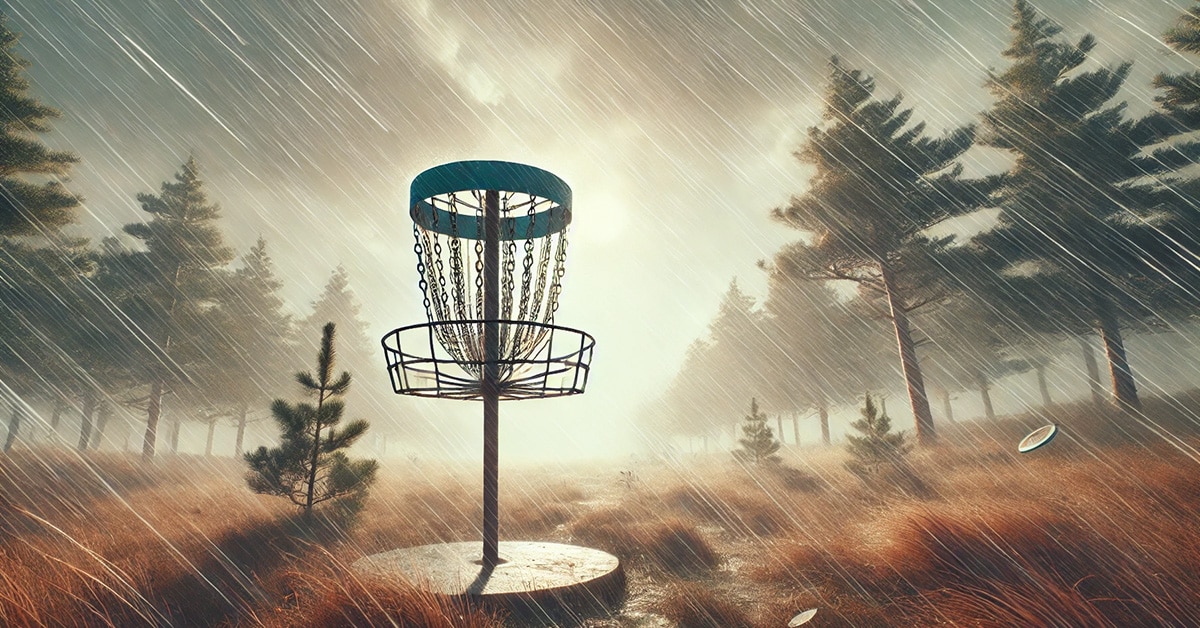At nearly every disc golf course you’ll find a weekly disc golf tournament. A “Weekly” gives disc golfers a chance to improve their game with a little extra competition and a chance to win some cash, but it also gives the local clubs an opportunity to reconnect and build community. No matter what level you play at, a weekly is a great thing to join. Here’s a little more about what you can expect.
What to expect when you arrive and before you play
Typically, you’ll want to arrive a little early to sign in, and get some practice throws in. Every club runs things a little different, so you probably will want to ask a local for specifics, but typically you’ll signup, pay, and find a card. Some weekly’s don’t have a group start time and you can play anytime as long as you have a card; for those take a look on Facebook to see if you can join someone’s card or create one.
Signups – You’ll need to find the TD (tournament director), or the person signing people up. They tend to arrive early as well. The TD will take your money, and will either write your name down on a paper and/or they have you “check in” on udisc. Open udisc and select “Events,” then find the weekly you are playing and select “Check In.” This will allow you to easily be added to a scorecard. Create a username ahead of time to save some time.
Formats – You may find yourself establishing a handicap, or simply entering a “Pool” (A pool, B pool, C pool). Pools are groups of players that can compete against one another. A pool is typically for open types of players. B pool is for those who can play Advanced (shoot even or down a few stokes), but not typically shooting the lowest raw scores). C pool is for new players or scores that tend to come in around double digits. PDGA sanctioned rounds are for registered members of the PDGA to establish a rating which helps in determining your division. You should have a good grasp on the PDGA rules before joining a sanctioned round (many weekly’s offer a PDGA optional buy in). On occasion, a weekly may be running a challenge like a 3 disc challenge, safari, or something else.
Fees – The fee to play typically ranges from $5-10. That fee can vary depending on if you want to buy into an ace pot, or PDGA sanctioned round. The TD (tournament director) will take the cash, or Venmo/Paypal, and likely also be incharge of issuing payouts at the end of the round.
Cards – Depending on the club, they may have you find your own card or they may do a random drawing; using a deck of cards or a disc flip. If you are tasked with finding your own card (usually 3-4 players), don’t worry if you don’t know anyone. You’ll usually find other people looking around for a card. If it’s getting slim and you still don’t have a card, time to ask some people to join theirs. One person on each card will create a scorecard – probably on udisc.
Bag Tags “Tags” – Local clubs will often have a tag with a number on it. This is essentially a local pecking order of who’s the best player in the club. Tags can be collected at the beginning of a round, or they can be on the line for just your card. If you don’t have a tag don’t worry you can still play your round with no tags exchanged. You may also be able to purchase one from a club member.
Payouts – Depending on the structure of the weekly, you may find yourself establishing a handicap or simply entering a “Pool” (A pool, B pool, C pool). Pools are groups of players that can compete against one another. A pool is typically for open types of players. B pool is for those who can play Advanced (shoot even or down a few stokes), but not typically shooting the lowest raw scores). C pool is for new players or scores that tend to come in around double digits. Weekly’s will have different payout structures and may pay out 1-6+ people. Payouts typically occur after the weekly so stick around, but they may also happen digitally later in the week.
Playing in the weekly
- PDGA rules – It’s best if you have a grasp on some PDGA rules.(there’s a great series on youtube) You’ll want to understand how to mark your lie, your stance behind the lie, what to do about OB, how to know when it’s your turn. Read your cardmates as well; some might be playing more serious or more casually than others.
- Order of play – This relates to the rules, but to summarize: teeing off order goes best score goes first and worst score goes last (udisc keeps track of this), after teeing off whoever is “out” or furthest away, goes first. If you’re not sure if it’s your turn you can ask, just be sure you’re not asking when someone is throwing.
- Pay attention to other player’s throws – This keeps you conscious of their play and keeps you from stepping in their line. Limit movements and talking when other people are throwing, and try and stay out of their line of sight especially when putting. If you find yourself in their line of sight when putting, that’s fine just don’t move! They may ask you to move.
- Other disc golf etiquette – Take a look at this for more good disc golf manners.
- Have fun! – Weekly’s are competitive, but for the most part, casual and are supposed to be fun! Make sure you’re not taking it too seriously. Brush off the bad strokes like they never happened and throw your next shot in!
How to find a weekly
The Udisc app is your best bet to find a weekly near you. Brows!e over to the Events button and sort by distance. Secondary methods are to look on Facebook pages and groups for your local club which will often have more info (lost discs, course maintenance, and other tournament info).
Go and Play!
Don’t be intimidated by joining a weekly! Even if you’re not very good at the sport, disc golfers are very encouraging and supportive. There’s a division for you no matter what level you play at and you’ll likely have a chance to win at your level! Joining a weekly is also great way to improve your game – you’ll learn a lot by watching others play. Playing with the local club is a fun way meet new people and make friends. It’s also a great thing to do when you travel! We encourage you to go and find your local weekly and give it a try!






